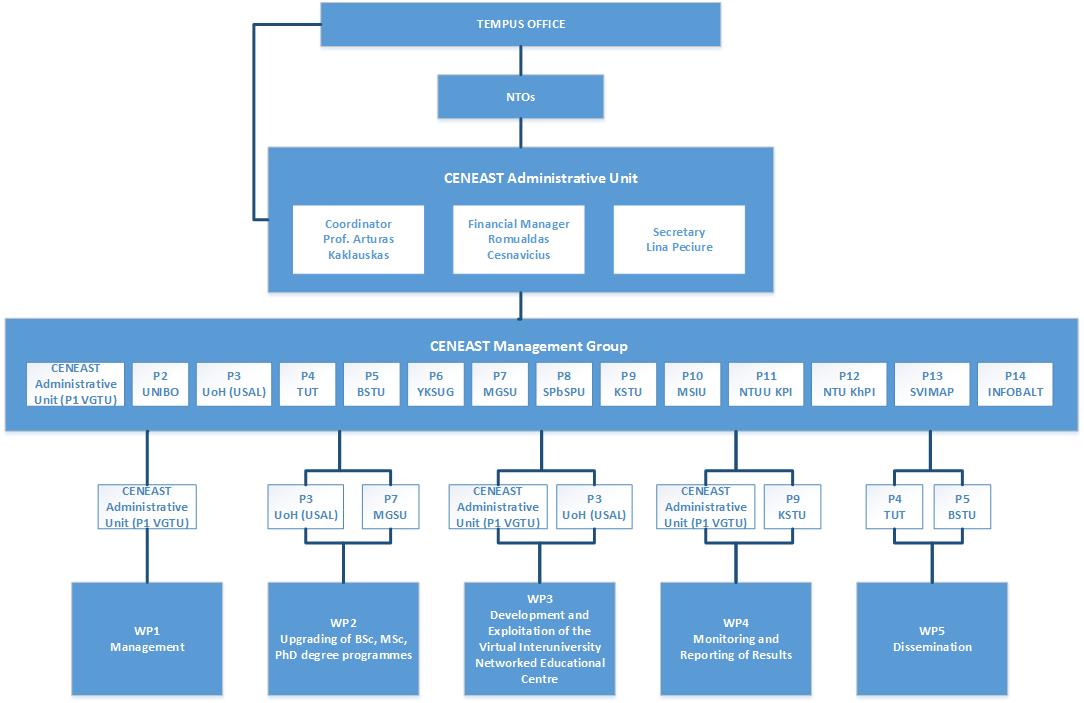Reformation of the Curricula on Built Environment in the Eastern Neighbouring Area [CENEAST]
No. 530603-TEMPUS-1-2012-1-LT-TEMPUS-JPCR
European Union’s programme Tempus IV (2007 – 2013), Action 1: Joint Projects (JP)
Project implementation period: 15th October 2012 – 14th October 2015
Project goals and objectives:
– To upgrade curricula of BSc/specialists, MSc and PhD programmes with new modules on energetically and ecologically sustainable, affordable and healthy built environment in universities of Belarus, Russia and Ukraine in order to enhance the quality and relevance of education in PC universities to labour market needs.
– To transfer the Bologna practices in education (curriculum development, ECTS, innovative learning, etc.) from EU universities to PC universities.
– To develop a virtual interuniversity networked educational system (intelligent library, intelligent tutoring system, intelligent knowledge assessment system, access to the e-sources of the research and educational information) in order to ensure cooperation among the EU and PC universities in education and research.
– To assist the competence development of staff within the PC universities.
– To train at least 240 students during the pilot project.
Planned activities in order to achieve the wider and specific objectives of the project are:
- Management;
- Upgrading of BSc, MSc and PhD degree programmes;
- Development and Exploitation of the Virtual Interuniversity Networked Educational Centre;
- Monitoring and Reporting of Results;
- Dissemination.
Expected results:
- Upgrade the curricula of BSc/specialists, MSc, PhD degrees in built environment according to project results and after the end of the project.
- Develop modules according to Bologna practices, courses for university educators in the specified field, teaching methodologies and curricula projects.
III. Virtual Interuniversity Networked Educational Centre.
- At least 240 trained students during the project and international academic cooperation and keeping the actuality of curriculum after the end of Tempus funding.
- Dissemination of project results.
Definition and distribution of tasks and responsibilities amongst project partners

